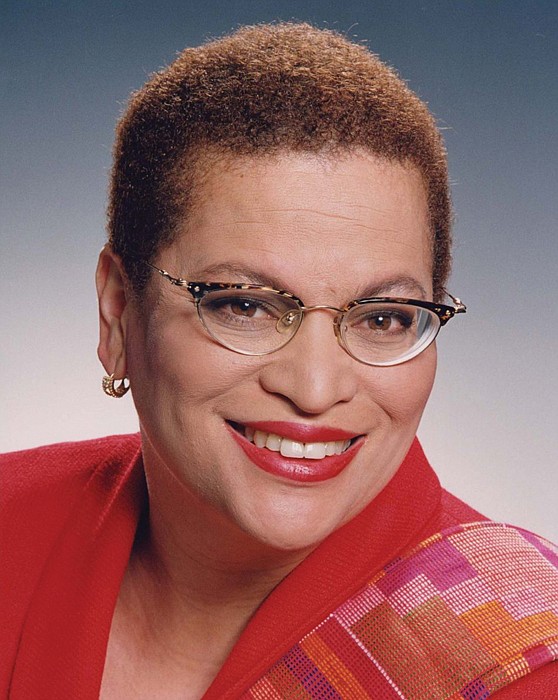Another lynching in Tennessee, by Julianne Malveaux
4/13/2023, 6 p.m.
The abolitionist journalist Ida B. Wells’ quest to document lynchings began when three of her friends, Tommy Moss, Calvin McDowell, and Will Stewart, were lynched because white people were envious of their economic success.
Mr. Moss, a highly regarded pastor, postal worker (a great job in the South in the 1890s), and activist started the People’s Grocery with two of his friends in the Curve area of Memphis, Tenn., partly because the white owner held a monopoly and provided substandard service to Black shoppers. The white owner chafed at the competition and that Black men dared to stand up to him. When two youths got into a scuffle over marbles, white men went to confront Black men at the People’s Grocery.
Shots were exchanged, and three Black men were eventually incarcerated, then lynched. Tommy Moss was a dear friend of Ida B. Wells. Her outrage at that lynching propelled her into documenting lynching around the South.
What would Mrs. Wells write today about how the Tennessee legislature politically lynched Justin Pearson and Justin Jones, two young Black Democrats who protested that legislature’s inaction after the massacres of three children and three adults at the Nashville Covenant School? The details are less important than the fact that the shooter used automatic weapons, had an arsenal, and was prepared to massacre others.
In the face of this carnage, the Tennessee state legislature refused to act on measures curtailing the ownership of automatic weapons. Thus, three legislators joined others protesting the inaction. In addition to the two Justins, a white female legislator, Gloria Johnson, was threatened with expulsion. She avoided it by one vote.
Tommy Moss, Calvin McDowell, and Will Stewart were lynched because they dared take a stand against the economic exploitation of a white grocer whose monopoly power denied Black shoppers fair prices and hassle-free shopping experiences. Justin Pearson and Justin Jones were expelled from the Tennessee legislature for taking a stand against the gun violence that their fellow lawmakers refused to take a stand on. The Nashville Metro Council unanimously voted to reinstate Justin Jones, but he may have to run to regain his seat in a special election. As of this writing, Justin Pearson is waiting to find out whether he will be reappointed to his seat by the Shelby County Board of Commission, although some worry that state legislators may retaliate against Memphis.
Ida B. Wells was a principled woman whose writing about lynching resulted in her newspaper, the Memphis Free Speech, being destroyed. She was threatened with lynching and left Memphis for New York, where she continued writing. She was undeterred by her pointed writing putting her in physical jeopardy. Like Mrs. Wells, the two Justins were undeterred by the potential consequences of their anti-gun protest. Like Mrs. Wells, they are a profile in courage and conviction.
Both Justin Jones and Justin Pearson are under 30. The resistance to their activism must encourage other young people to be similarly active. Unfortunately, too often, young people are discouraged from political participation. Many don’t vote because they find it cumbersome or because they feel it doesn’t make a difference. But the Justins are not only making a difference but inspiring others to do the same thing. People are thronging to Nashville, the state capital, to protest both the treatment of the Justins, but also the inaction of the legislature in the face of gun violence.
The Tennessee legislature behaved unjustly in expelling the Justins. Their selective discipline of these young men is in sharp contrast to their treatment of Rep. Paul Sherrell, who advocated “hanging from a tree” as a form of capital punishment. Sherrell offered a tepid apology after members of the Black Caucus called his resignation or, at the very least, censure from his colleagues. He was not rebuked. He did not resign. He was unscathed by his abhorrent statements. He apologized for his “poor judgment,” but it was more than poor judgment that lynched Tommy Moss and his colleagues.
May the treatment of the Justins inspire us to resist racism. One of the signs outside the State Capitol said it succinctly. “No Justins, no peace.”
The writer is an economist, author, and dean of the College of Ethnic Studies at Cal State LA.







